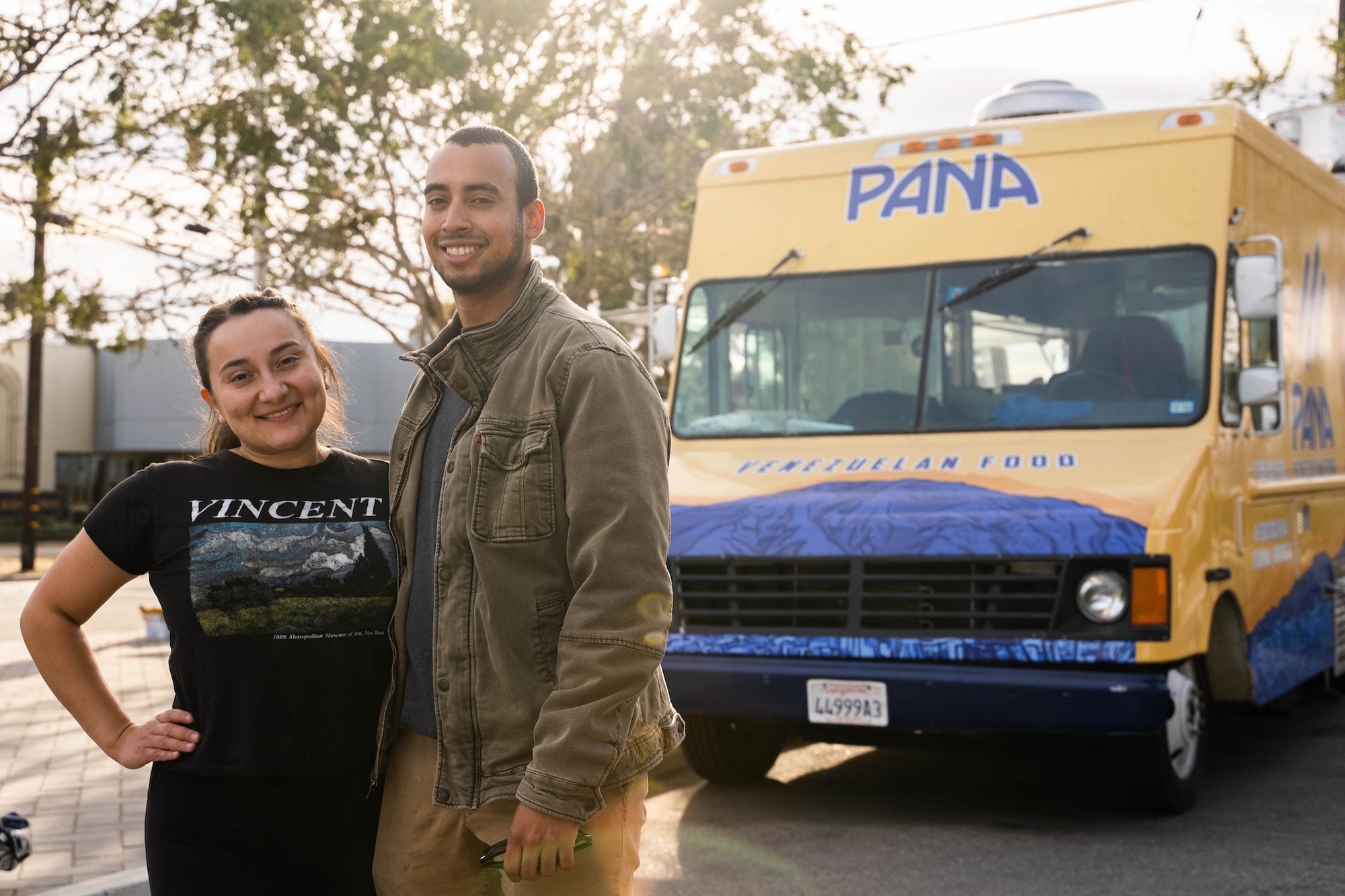Opinions expressed by Entrepreneur contributors are their own.
German Sierra, founder of Pana Food Truck in Santa Cruz, California, never imagined his craving for a childhood comfort food would lead him to build a thriving business with a loyal following and the distinction of Yelp’s Top 100 Food Trucks.
“My brother and I came to the United States in 2016 [from Venezuela],” he says. “There weren’t any arepas. We actually eat arepas every day in Venezuela, so we needed them. My brother was like, ‘Hey, why don’t we make some arepas and take them to the streets, and maybe people will buy them?'”
Armed with foil-wrapped arepas and homemade Venezuelan juices, the brothers set up outside a supermarket. They didn’t sell a single one. A police officer stopped them, asking for a permit they didn’t know they needed. Instead of giving up, Sierra gave the food away and kept searching for a way forward.
Related: They Built Their First Restaurant With Their ‘Bare Hands.’ Now They Have 380 Locations.
“Sometimes there’s a little miscommunication between entities. Sometimes the health department will [have] different rules than the city,” Sierra says, describing the challenges he faced trying to get his business off the ground. “There are specific places to park. You cannot park everywhere because there’s gonna be competition with restaurants.”
As a business with one core offering, Sierra had to sell the value of arepas to customers who had never heard of them.
“It was hard in the beginning — and [is] still hard — to convince people why we don’t have other dishes,” Sierra says. “We wanted to focus on arepas [so] there is no confusion of what we sell, and it’s memorable.”
Small adjustments, like listing arepas as “chicken” or “beef” on the menu, helped introduce the dish to American diners and reduce confusion without losing cultural authenticity. “When customers come, they want 30-second decisions — no half an hour figuring out the menu and what to get,” Sierra says.
Related: He Grew His Small Business to a $25 Million Operation By Following These 5 Principles
As word spread, Sierra focused on making connections with customers, pairing education about the food with free samples to encourage repeat visits. Early on, he recognized that an excellent customer experience made people more likely to choose Pana over another restaurant.
“I didn’t wanna be just in the food truck business,” he says. “I want to be in the heart-warming business, because the food makes your heart warm. That’s the emotion I want to create every time.”
Now celebrating six years in business, Pana continues to grow while staying true to its roots. In 2025, Sierra and his wife, Gabriella Ramirez, opened their first brick-and-mortar restaurant in downtown Santa Cruz. “It wasn’t an overnight success, and we’re still growing and improving,” Sierra says. “We are just a baby, and there’s so much that we can change and improve.”
For Sierra, every arepa is a chance to share a piece of home, and to build what he calls “an arepa empire, one arepa at a time.”
After turning a craving for arepas into one of Yelp’s Top 100 Food Trucks of 2025 and opening a brick-and-mortar, Sierra’s advice for current and future business owners is clear:
- Start small but stay consistent. Break overwhelming challenges into smaller steps and commit to showing up for your customers every day.
- Adapt to your audience while staying authentic. Customer education can help your audience understand new offerings and grow goodwill in your community.
- Lead with generosity. Warm service and meaningful interactions matter just as much as what’s on the menu. Customers return not only for flavor, but also for connection.
- Think about the big picture. For Sierra, selling arepas was never just about food — it was about creating heart-warming experiences. Any platform, whether it’s a food truck or restaurant, can be a vehicle to share your mission.
- Play the long game. Building something meaningful takes time, patience and passion. If your business isn’t an immediate success, research the steps you’ll need to take to achieve smaller goals that get you closer to your vision.
Watch the episode above to hear directly from German Sierra, and subscribe to Behind the Review for more from new business owners and reviewers every Wednesday.
Editorial contributions by Jiah Choe and Kristi Lindahl














